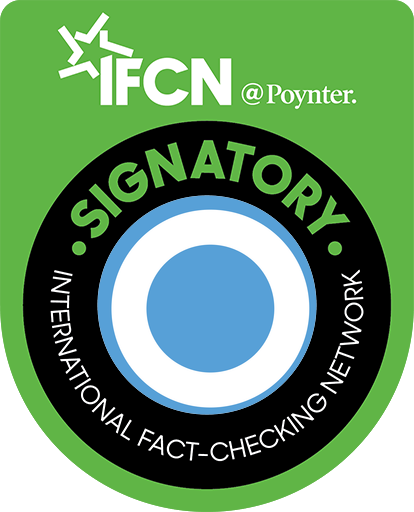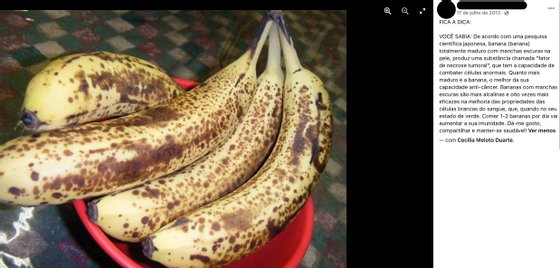The idea that a Japanese investigation has concluded that ripe bananas produce a substance called “tumor necrosis factor”, known as TNF, which is capable of fighting abnormal cells, that is, cancer cells, and that it increases the protection of the immune system, is gaining strength. circulates on social networks as a truth acquired and confirmed by science. It is not like this.
The study in question, dated February 2009, was published in the journal Food Science and Technology Research and mentioned that bananas have the potential to prevent disease, but without ever suggesting or advising that the consumption of this fruit can reduce abnormal cells , as is the case with cancer.
The Japanese researchers tested mice to try to understand the ability of bananas to produce an immune response (including TNF) and found that there was a better response as the fruit ripened. In other words: the ripe banana can help in some situations (since it has been proven that the fruit has the capacity to contribute to the propagation of macrophages and morphological changes in certain cells). However, it cannot be said that bananas produce a substance that helps fight “abnormal cells”.
Despite this, the study does not suggest that humans increase their intake of bananas, nor does it conclude that it can prevent diseases such as the flu or cancer, especially since the researchers do not indicate that bananas contain TNF. What the study shows is that bananas, particularly when ripe, can increase TNF and other substances in the immune system.
However, TNF is a substance produced by the immune system of animals and is not present in the composition of fruits or plants, which rules out the idea that bananas have this substance. Jessada Denduangboripant, professor of biology at Chulalongkorn University in Thailand, explained to AFP that “TNF is a substance that is part of the immune system of mammals and [que] it does not exist in bananas and other plants.”
conclusion
It is false that ripe bananas produce TNF, a substance that helps fight abnormal cells, that is, cancer cells. The Japanese study showed that there was a better immune response with the ingestion of ripe bananas, but it is not true that the fruit contains this substance, since it only exists in mammals. Thus, it is not the banana that has TNF and the study does not conclude that the fruit can prevent diseases such as cancer.
Thus, according to the Observer classification system, this content is:
WRONG
In the Facebook classification system this content is:
FAKE: the main content claims are factually inaccurate. This option typically matches “false” or “mostly false” ratings on fact-checking websites.
NOTE: This content was curated by The Observer as part of a fact-checking partnership with Facebook.

Source: Observadora
